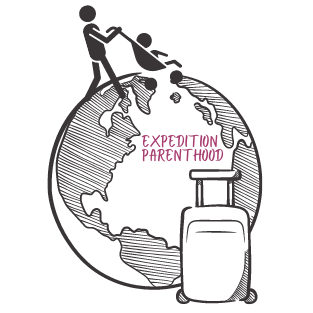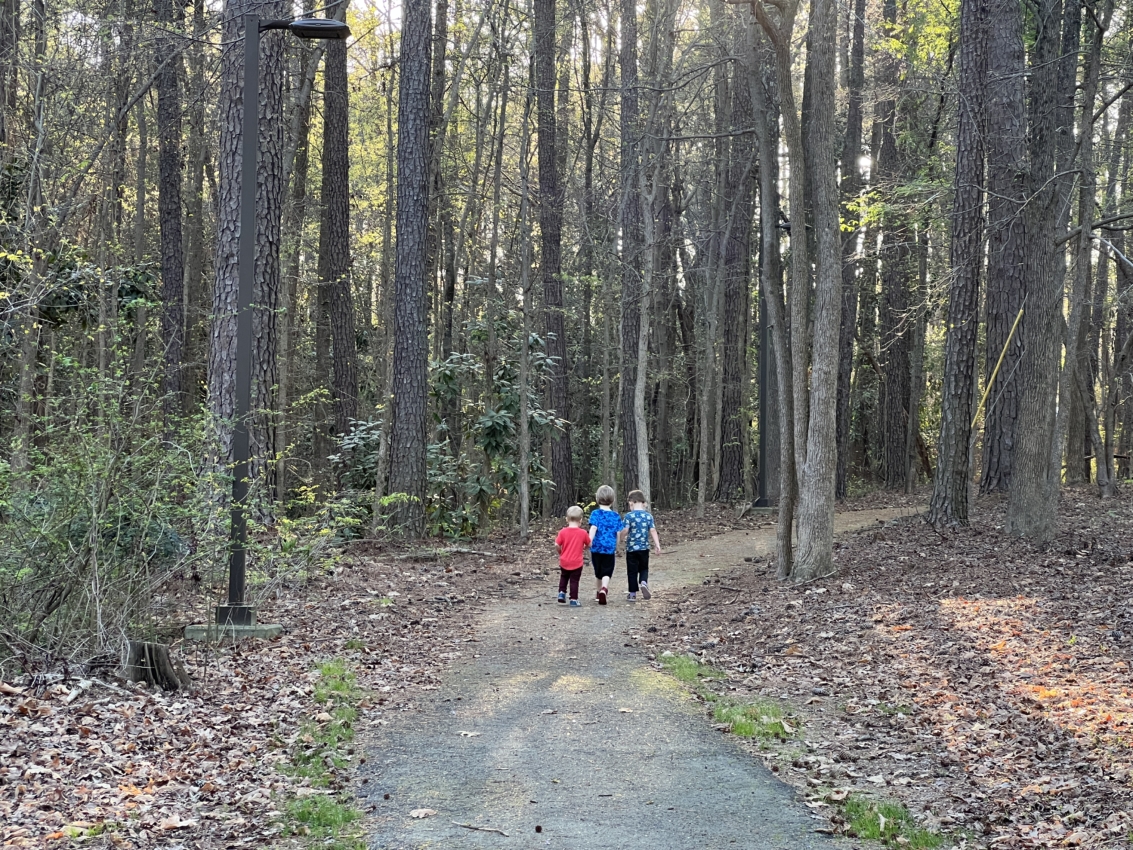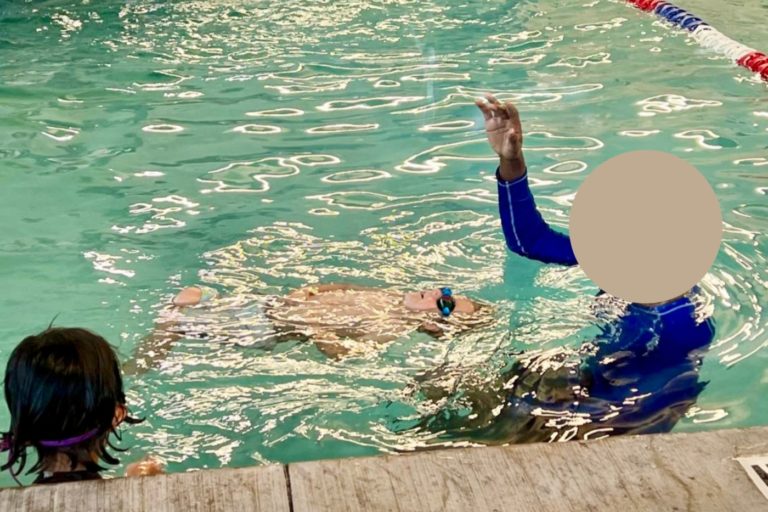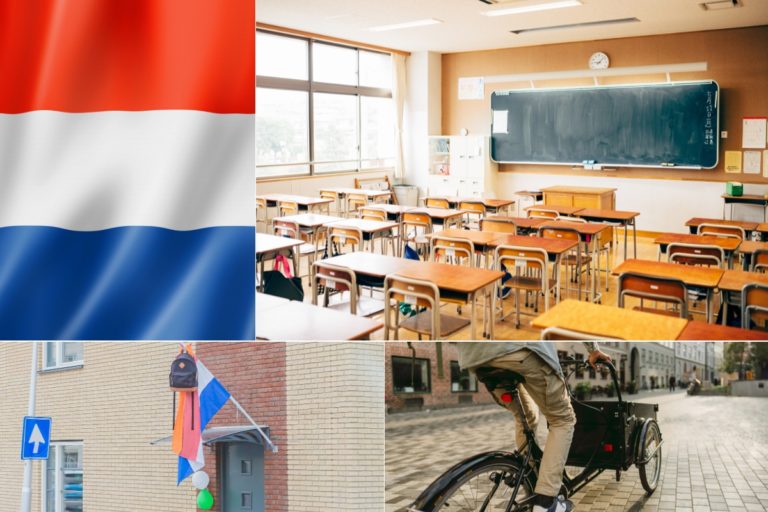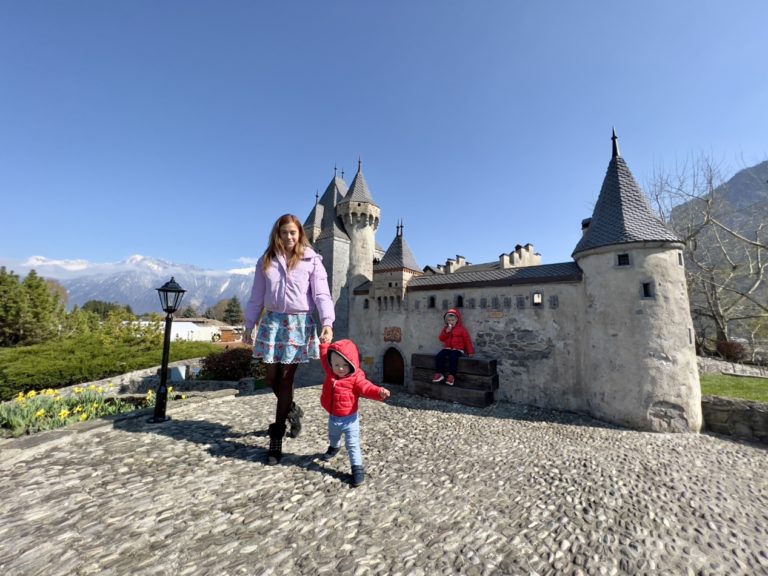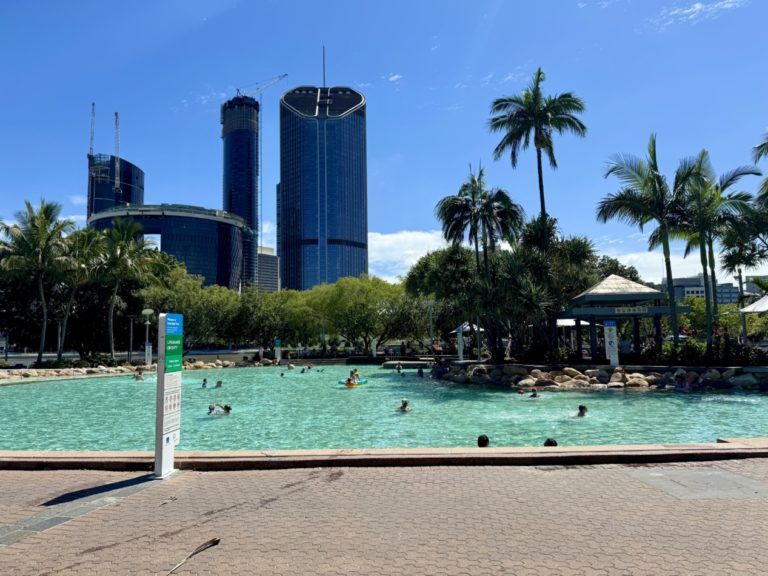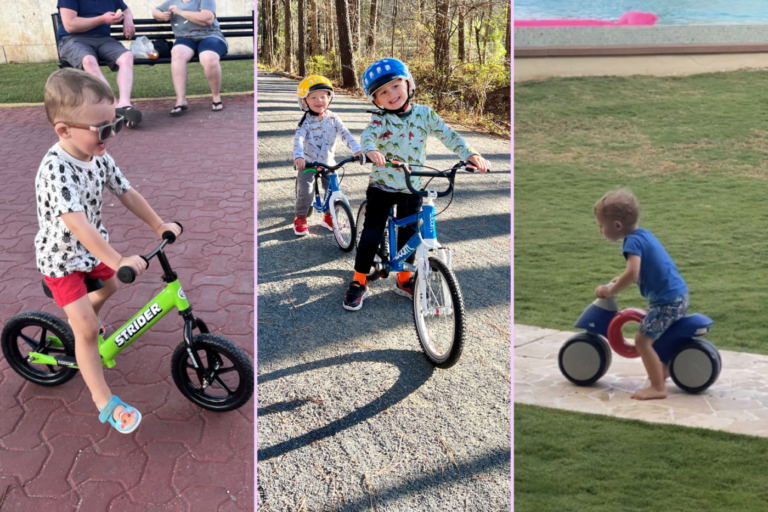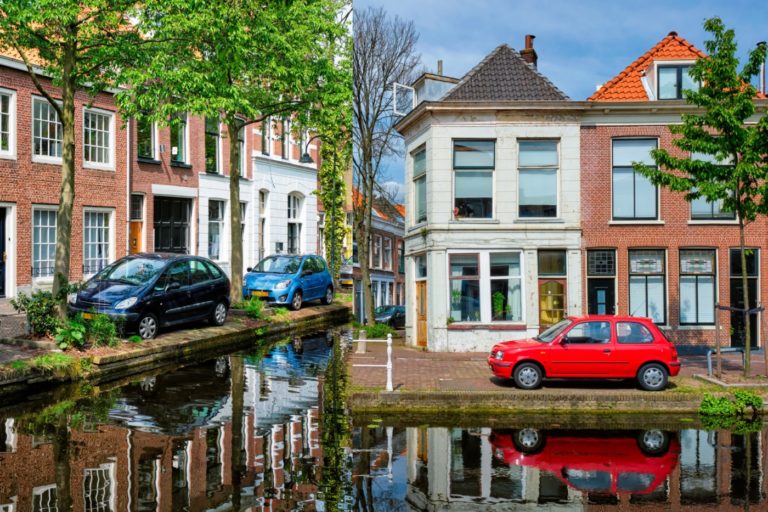Differences of American Parenting vs European Parenting
Growing up in Europe, in Poland to be specific, I didn’t know how much American parenting differs from European parenting. Even when I married my American husband I honestly didn’t think how different raising kids in the US would be, and even years later we both often get surprised at how different our parenting ways are.
My first son was born in Poland and spent the first year of his life in Italy. We then relocated to Utah for a while, followed by Mexico, then moving to France, and briefly returning to the US realizing how different I was planning on raising my kids.
There are some enormous cultural differences and norms that surprised me, and honestly still surprise me in the US.
Technically there’s no such thing as European parenting, as every country has its own culture and ways of doing things. However, after living in multiple European countries with children and my American husband, I do believe that certain patterns can be applied to American parenting vs European parenting style.
How does parenting by American parents differ from parenting styles in other countries? American parenting vs European
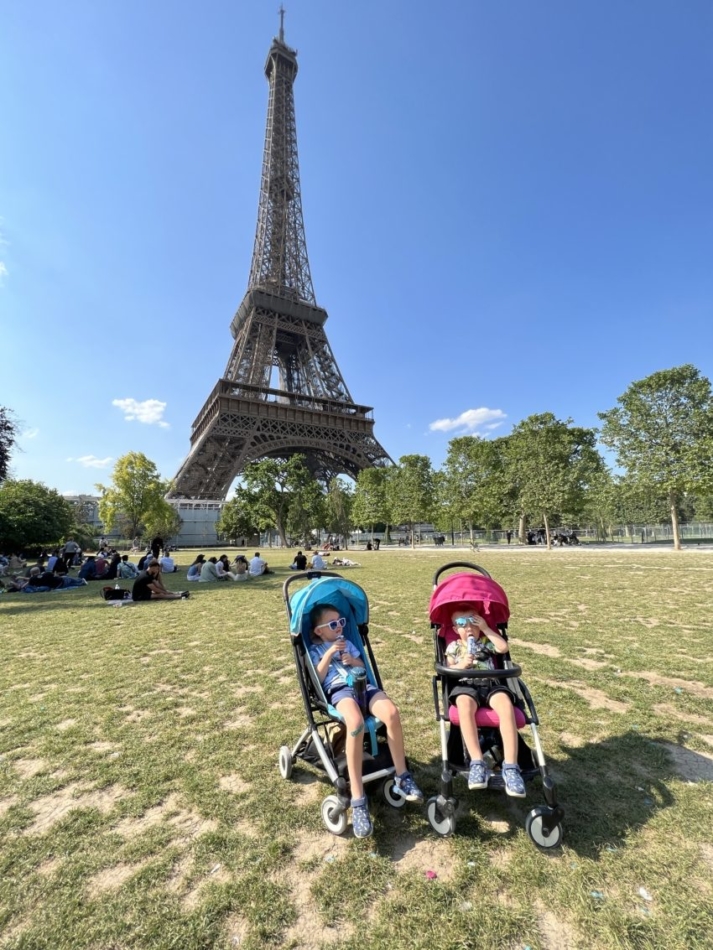
1. Americans practice more intense parenting
For European kids cooperation and teamwork matter more than educational achievement, especially in early education. While American parents insist on teaching their still-diapered toddlers to recite ABCs and getting worried about being able to count to 10, European parents tend to worry less about basic educational skills and focus on practical skills instead.
In European preschools, instead of formal education, kids mostly play and learn how to become valuable members of society. They learn how to put on their jacket and zip it, fully potty train, entertain themselves, know how to lose at a game, and work as a group as well as an individual.
It’s not uncommon to see American parents keeping their kids in diapers up to age 3 or sometimes 4, and potty training is largely child-led. It’s not normal in Europe.
It does, of course, have to do with the fact that in Europe most children attend government preschools (also known as kindergartens), while preschools in the US are expensive and often disregarded as an inferior option. In Europe kids are part of the society at preschools at 2 years old.
Basically, European parents prefer kids to be able to survive and become self-sufficient, while American parents want them to be intelligent. Even though knowing how to read and write sooner isn’t proving any intelligence in the long run.
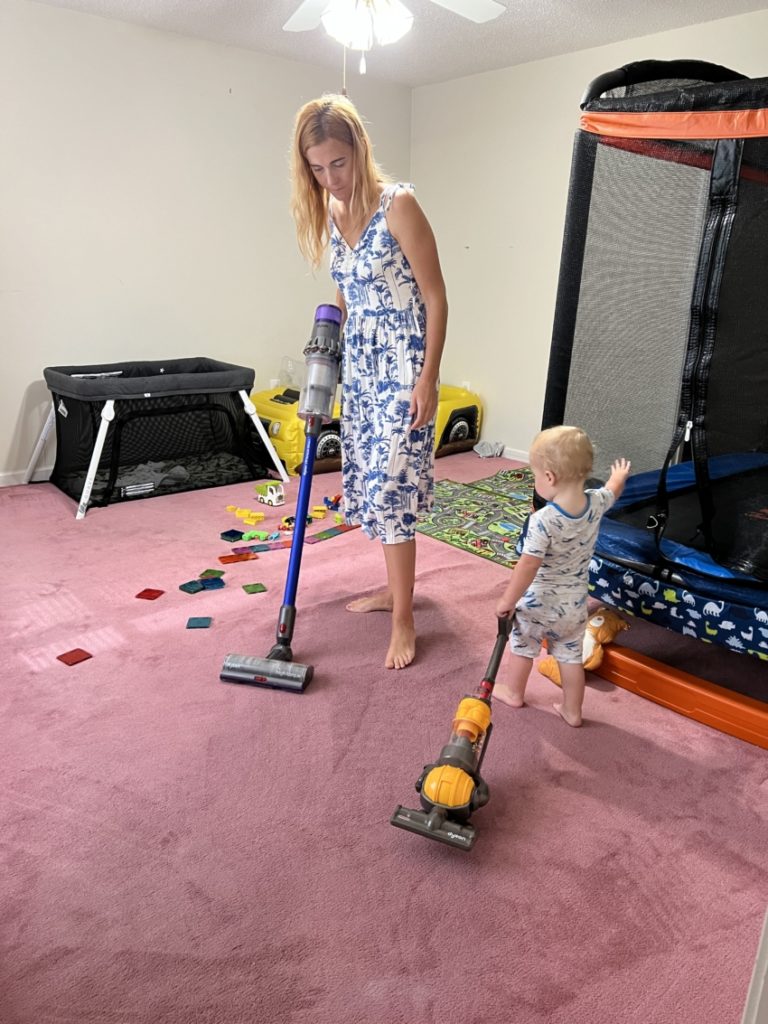
2. European kids are less sheltered
I always hear from Americans is that I talk to kids like they’re adults, and it has some truth to it as Europeans believe there’s no taboo. Meanwhile, in the US kids aren’t really talked to about big issues from an early age and understand them.
For instance, alcohol is a HUGE deal in America. European kids can hang out in pubs or bars and in some spots like Italy or France can even taste wine, which would be considered insane to Americans. Most Europeans would let the kid smell or taste alcohol, as they know that no sane child will like the taste anyway.
Americans tend to get pretty weirded out by simple things like nakedness, as they consider it sexual. Ironically, putting a swimsuit top on a toddler seems more sexual than if they were running naked. It’s quite uncommon to see girls under maybe 12 years old in bathing suits with tops all over Europe. It’s pretty normal for a 2-year-old to be naked on the beach or by the lake in France or Italy.
I often tend to see European kids being less sheltered from the reality. Even in European children’s books kids are introduced to subjects like death, wars, getting hurt, and so on in a normal blunt way, while in the US that wouldn’t be considered appropriate.
European parenting doesn’t censor much
I remember when we visited a French historical amusement park called Puy du Foy and posted about it on Instagram, various Americans were stunned.
They commented that kids my kids were too young to see bloody Roman fights or scenes from the French Revolution. It wasn’t weird to the French audience and there were numerous children in the audience, including elementary school trips.
In the US, parents attend to their kids instantly and react to every, often silly, need. Kids want juice, kid gets juice right this second, because “how can they go thirsty?
As a result, it’s not uncommon for American parents not to want to do stuff with their kids, as many outings end up with a giant cooler of snacks and carrying a child back to the car. Meanwhile, European children are much more capable they were than similar-aged American kids as they understand that they need to wait, can’t interrupt the adults as much, and must walk.
Less sheltered, also means more adult-like responsibility and savoir-vivre. European kids are much more capable of doing things themselves, from using utensils, cleaning their stuff, or not interrupting – these are just basics every child learns as a toddler. America is actually known amongst other countries for having less-than-mannerly children.
3. European kids have more freedom
Generally speaking, Europeans give their children a lot of freedom. I guess the freedom kids are given starts with babies when parents of Nordic countries Scandinavian countries (I saw it a lot in Poland too), bundle the infants in cold winters, and nap outside in their strollers. It’s not a weird thing to leave the babies napping outside, but if you try to do this in the US people will literally call the cops on you…
There were a few proven cases of Scandinavian tourists in New York who left their kids in their strollers napping and seeing them through the glass window of a restaurant. They couldn’t understand why they were not allowed to do this.
Once the kids are slightly older it’s not unusual for the kids to play on their own on a playground in Europe. I remember noticing that at Parisian playgrounds my American husband was the only one who hovered, while other parents sat on their butts around and calmly read a book or had a chat. Even crawling babies were free-ranging among other children.
Speaking of playgrounds, risks are normal in Europe. High-raised structures with ropes and a lack of barriers at playgrounds are normal all across Europe. Allowing children to do dangerous things that children know and understand that they’re pushing the limit, so they’re more focused and careful during the activity.
Babyproofing idea doesn’t really exist in the same way as European parenting
The same goes for babyproofing. American houses are extremely babyproofed: socket plugs, baby gates, drawer locks, you name it. It’s rare to see such intensity in Europe. Kids are just told it’s not allowed and learn through consequences.
Imagine my shock when we came to the US and I was the only parent who sat on the bench and did not hover around the children, despite some kids being fairly old enough to not need any help.
In fact, I overheard a few moms talking about how some parents can be on the other side of the playground (note: fenced actually), because it’s so dangerous and stressful to children.
School-aged kids (5+) can walk to school by themselves and it’s usually pretty embarrassing if parents would drop you off at school if you’re older than 3rd grade. I’ll never forget how normal it was to everyone when during my studies in the Netherlands an 8-year-old boy was playing basketball with us, a 20-something group of students.
At some point, he told us if we wanted to have a beer because his parents were having a party. We hesitantly agreed and 5 minutes later the boy returned with 2 bottles of cold beer. The dad peaked out briefly and waved to us from around the building nearby, and I assumed returned to his party because we never saw him again. No local thought it was weird, it was a very normal scene in the Netherlands.
American parents always claim that kids might be easily kidnapped and this is why European parents let the kids be as they don’t have this fear.
Statistically though, American children are no less safe than European children and random kidnappings don’t really happen in the US. It’s just an irrational fear that spreads among parents.
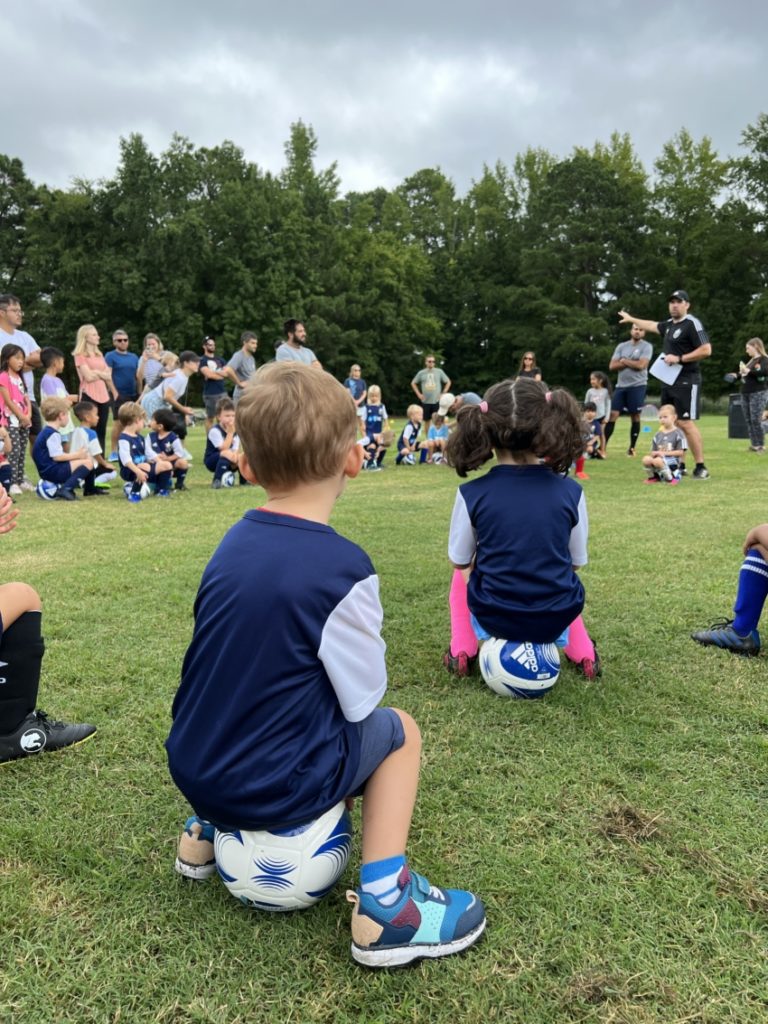
4. Americans seem to divide things to do with kids and without
In the US, it’s practically frowned upon if your child doesn’t participate in at least one or two after-school activities they won’t do good. People even redshirt their kids from entering school, just so they can be bigger and as a result supposedly better at sports.
By mid-primary school, if your kid isn’t on some sports team (at least one, but preferably two) it’s slightly weird and your child won’t have many friends as everyone is always busy with after-school activities.
Meanwhile, in Europe kids still have activities, but they’re not as many and strict in terms of having to compete. In Europe, your kid can play soccer or dance ballet because they like it and it’s fun, but in the US it’s all about being good enough to train for a team.
In Europe, kids play after school at the park or arrange playdates, but in the US most have scheduled activities, including weekends and summers filled with camps, so parks are often deserted unless it’s preschool-aged kids with stay-at-home moms.
Forget about meeting someone for a playdate if the kid has a sibling, God forbid two siblings ages middle school or older. You will never see them in the US because they’re always at some sports practice.
As a result, it creates a separation for kids activities and activities without kids. American parents hang at kids’ sports and extracurriculars so when they can, they want to get away and enjoy doing something without their kids. In Europe, kids are part of society and so they go places with their parents.
They hang around and play independently so they tag along. If parents want to visit their friends, go to a bar, barbeque in the park, or do something kids just come and entertain themselves.
Even playdates are hard to arrange in the US and kids can’t truly arrange them from an early age like in Europe, because parents tend to “interview” the other parents before coming over. Not to mention, the lawsuit mania makes parents scared as well.
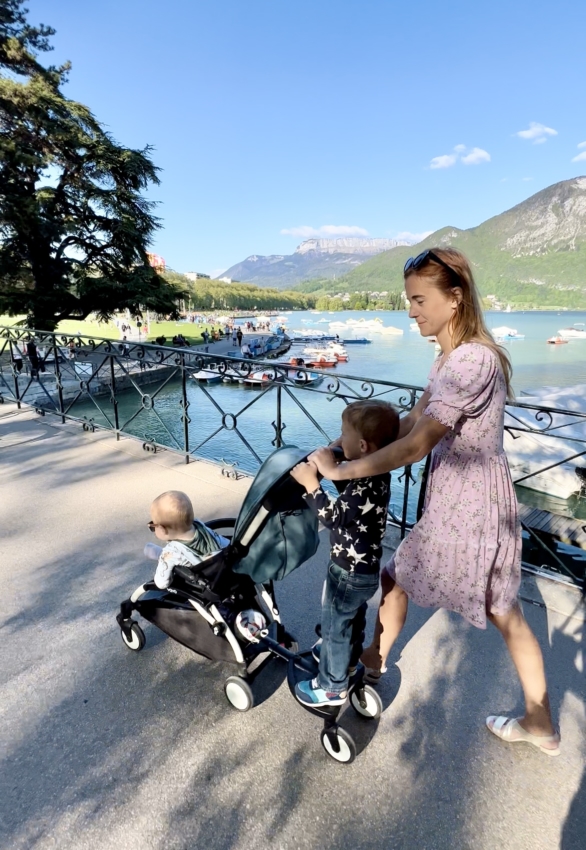
5. Education is stricter in Europe in terms of attendance and program
Growing up I was always told that American schools offer more freedom and encourage kids to think independently, rather than learn in a structured way that European schools seem to enforce.
It’s true, kids are allowed way more creativity and especially with homeschooling on the rise in the US (which is illegal in various European countries) it’s even more visible.
It’s common for American parents to praise their children for intelligence and tell them that they can be a president, own a company, join the NFL, and do other things that a child might think of. On the opposite end are European parents who would be more likely to reply to a child wanting to be a president or a future CEO to be realistic and possibly aim for something more achievable. Who is right here?
Growing up I always found the American way of “you can be whoever you want to be” amazing and encouraging, nowadays I find this to be rather dangerous from a psychological point of view as it produces a lot of disillusioned young adults.
However, it wasn’t until I attended an American college (after attending college in Poland and the Netherlands) that I noticed that sadly, neither system is good enough. American kids get freedom and creativity from an early age, but they lack the basis of enforced general knowledge that allows them to pick what they like.
Educational system is very different in the US than it is in Europe
To make the most basic example, American education system focuses on pursuing specific interests vs European education is more classical: first establishing general knowledge of everything before getting into the creative and more in-depth side of things.
For example, I met people who were eager to take a class on Dutch Baroque art, but they had zero knowledge of the basic art history. It was great that they felt creative enough, but you truly cannot understand Dutch art without knowing the minimum art history, even the terminology alone. Eventually, it stopped them from understanding the class at all.
American education encourages a child to study it on their own and it’s expected at Ivy League schools for example, but this is why the general population is overall more educated on several topics.
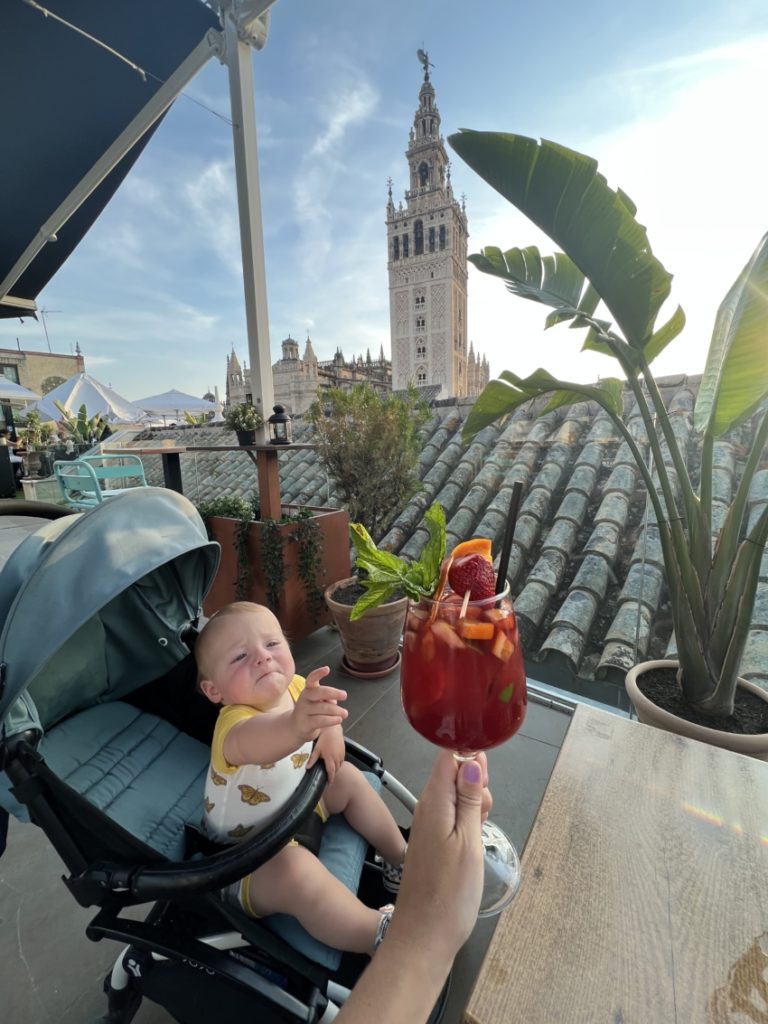
6. European kids are better eaters
European children are more open to eating a variety of foods. Not just French kids, but most children. You can still find the standard American kids menus anywhere like chicken nuggets, pizza, or pasta with butter, but children are encouraged to eat different kinds of foods.
Even babies eat absolutely everything and it’s completely normal. In Italy for example, parents were cooking big pots full of meat and fish for their infants. My son was eating mushes salmon as one of his first foods and in the US I never even saw a baby jar that wasn’t just veggies mixed with fruits and maybe some chicken.
Primary school cafeterias serve normal adult-like food in European schools, while in the US preschools and schools standard menu consists of fast food.
7. American kids have more toys, but play less
American kids have an abundance of toys. Separate playrooms and a million toys for every child are common and expected in America. European kids have fewer toys. Not just because they live in smaller apartments, but believe more in creative play. In fact, some German preschools do something called a week without toys when all the toys leave the classroom, so kids can get creative.
My kids were always amazed when they visited someone in the US and saw 100+ toys per child, outdoor playhouses, trampolines in the yard, you name it. Yet, more and more American parents will tell you that their kids never play with any of this.
Ironically, I noticed that European kids use their imagination more and play better than American kids. As education in a traditional sense of math and reading is forced on American kids from an earlier age, the ability to play is lost quickly.
It’s pretty common for kids in first grade or even earlier to end up playing video games or watching something on electric devices at playdates in the US, while European kids use imagination to play.
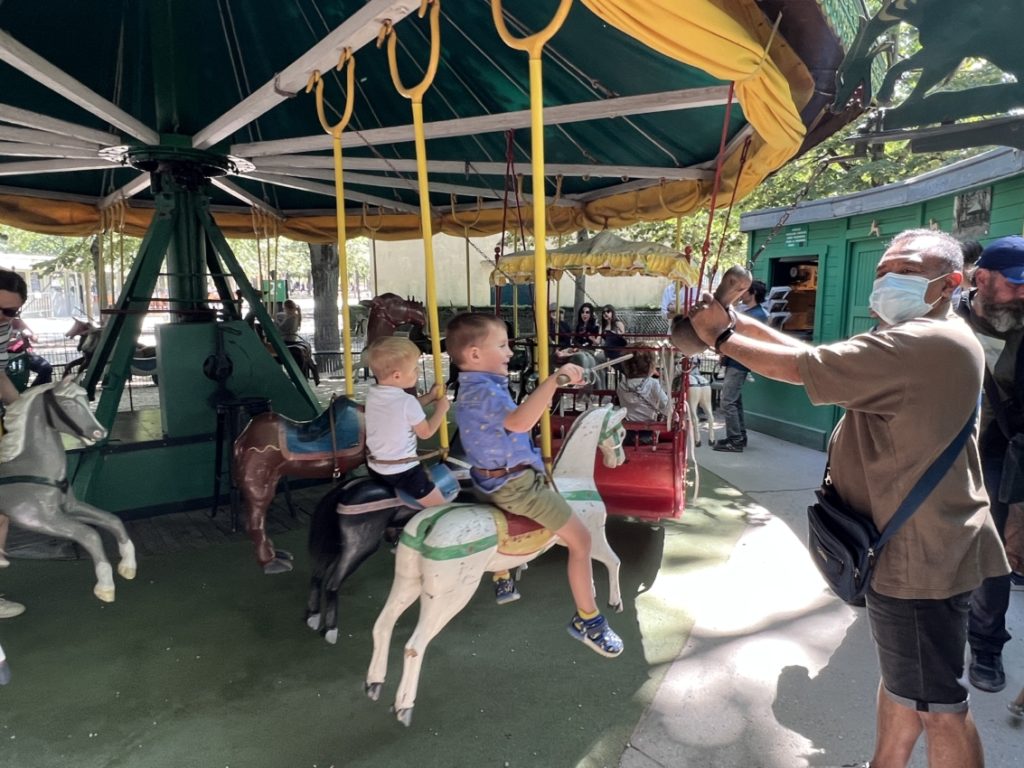
Can you implement European parenting styles in the US?
Honestly, I don’t think so. You can do your thing here and there, but if I let my child ride a bike alone to the store in the US to buy a snack I’m pretty sure someone would call the cops and we’d get in trouble.
Can I get my kids to eat healthy? At home I can, but when they see other kids eat junk food at school they’re obviously going to want to fit in.
We can go out and play, but if all other kids have activities it’s not very fun for social kids to play by themselves on the playground. No wonder, we’re signed up for a million activities in the US when we simply cannot hang out with people.
The list goes on, but most importantly, the US is a highly competitive society with one of the highest economic inequality in the world. Not just in a financial sense, but also in education. As a result, those who can force overprotectiveness and education from an early age, do it as it’s not given, but a privilege.
America should ask itself whether these privileged parenting choices make sense for society as a whole and in my opinion, the answer is no. They just support the constant rat race.
Books I recommend on American Parenting vs European
- Bringing Up Bébé: One American Mother Discovers the Wisdom of French Parenting
- There’s No Such Thing as Bad Weather: A Scandinavian Mom’s Secrets
- Achtung Baby: An American Mom on the German Art of Raising Self-Reliant Children
- The Happiest Kids in the World: How Dutch Parents Help Their Kids (and Themselves) by Doing Less
- French Kids Eat Everything
